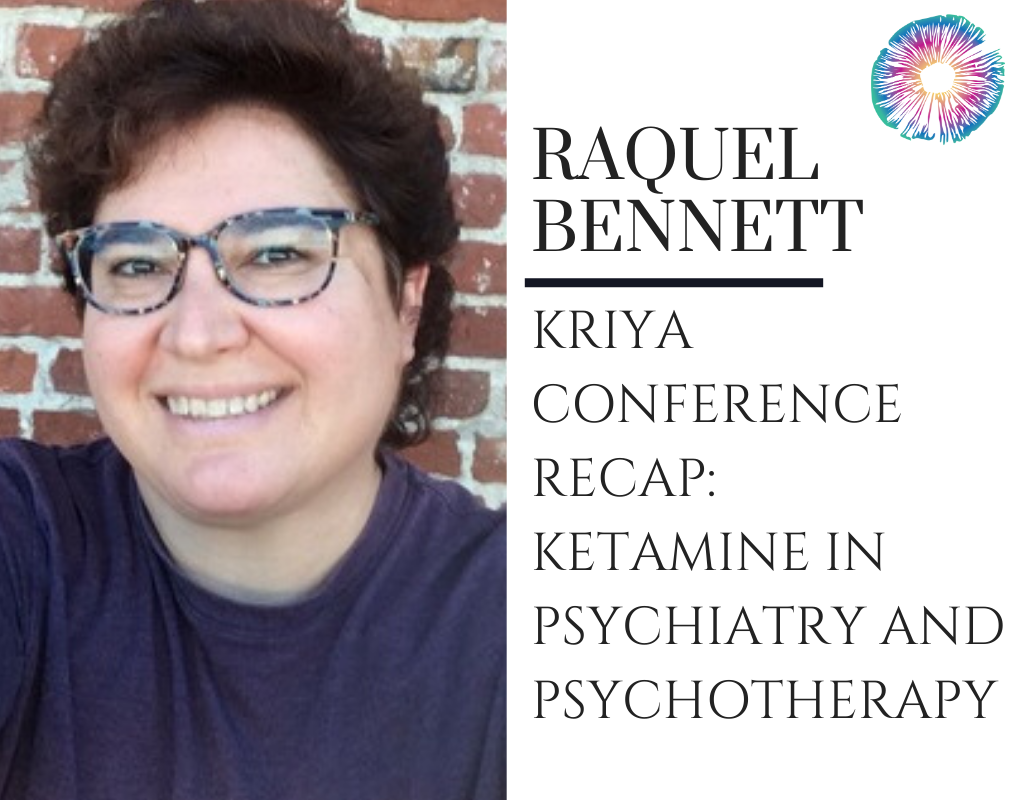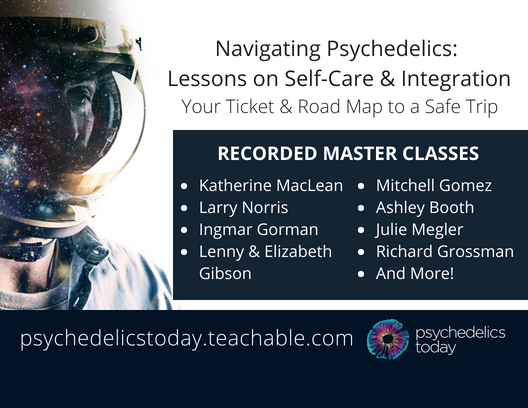
Therapy
Raquel Bennett – KRIYA Conference Recap: Ketamine in Psychiatry and Psychotherapy
December 3, 2019
In this episode, Kyle sits down with Raquel Bennett to recap on the KRIYA Conference. Kyle attended the conference, which is to bring people together with dedication to understanding the better use of Ketamine.

In this episode, Kyle sits down with Raquel Bennett to recap on the KRIYA Conference. Kyle attended the conference, which is to bring people together with dedication to understanding the better use of Ketamine.
3 Key Points:
- The more recent KRIYA Conference was the last of its kind. The goal is to make information on ketamine more accessible to more people in the future.
- At KRIYA Institute, they believe that there is not one right way to use ketamine, different patients are best served by different treatment strategies.
- Intramuscular ketamine is usually 93% bioavailable, while nasal and lozenge based ketamine is usually only 40% bioavailable. The less variability the better when working with a powerful medicine for therapy.
Support the show
- Patreon
- Leave us a review on iTunes
- Share us with your friends – favorite podcast, etc
- Join our Facebook group – Psychedelics Today group – Find the others and create community.
Navigating Psychedelics
Show Notes
KRIYA
- KRIYA is an international conference focused on ketamine and its therapeutic potential
- The goal of KRIYA is to get people of all different ketamine backgrounds in the same room
- Different people benefit from different things, and different doses and methods matter
- There is a symbiotic relationship between therapeutic and spiritual practice of ketamine
- She wanted to create a place where researchers and clinicians could come together
- This last conference was the last one
- The conference is CME accredited, which means physicians can get units for their education
- Raquel picks people from different backgrounds, therapists who use low dose ketamine for therapy, to those who do full blown spiritual work with ketamine
- Ketamine is a relational medicine – which is about having a relationship with the substance
Ketamine Therapy
- Ketamine Therapy Lessons
- Wisdom Teaching
- A Loving Relationship
- The Medicine
- The medicine is adjunct to the entire process, it’s not just about the ketamine, it’s about the relationships, the wisdom teaching, etc. And each are powerful on their own, and even more powerful when all combined
- When people are using ketamine in absence from the other components, people are not getting the full effect that they could
- “Ketamine when done correctly, when administered in the right setting, with the correct support, enhances resilience.” – Raquel
- Therapy is an important mechanism to teach coping skills needed in psychotherapy
Highlights of KRIYA
- When Raquel first started running this conference in 2015, the clinicians were afraid to even come, they were afraid to talk about Ketamine
- This past year, there were hundreds of applicants and so much excitement around talking about ketamine
- In 2014, a whole bunch of psychiatrists stood up and said they have been using ketamine for their patients and it worked
- A doctor talked about combining meditation with ketamine to heal substance use disorder
- When ketamine is offered in a structured context, its highly beneficial
- Another doctor talked about using ketamine to treat those who are acutely suicidal
- People who are severely psychiatrically distressed benefit from ketamine treatment
- Another doctor talked about combining ketamine with EMDR to treat patients with PTSD
Bioavailability
- Raquel says she prefers intramuscular ketamine over lozenges
- It’s the cheapest way of doing it
- Its super precise, you have a great control of the bioavailability of the ketamine to the patient
- With IM, 93% is bioavailable
- With nasal and lozenge ketamine, usually 40% makes it to the patient’s brain, which is a huge range of variability when working with a powerful medicine
Progression
- Clinicians are on the fence for prescribing for at home use
- A doctor talked about 4 different tiers of ketamine experiences related to dosage
- Other doctors talked about measurement tools of pre and post experience ways to take data when administering ketamine to patients
- There is a lot of ketamine use outside of the medical context
- The field is stuck in the question “Should ketamine be allowed to be used by people who aren’t psychiatrically fragile?”
- Everything good that is going to come out of ketamine usage and assisted therapy, will come
- It’s a slow process, but it is all moving forward
Final Thoughts
- Raquel encourages people to are interested with using ketamine in therapy to get together regionally and learn from each other
- She is thinking about creating a video series, as well as a retreat for ketamine providers
- The KRIYA Conference is over, but the KRIYA Institute isn’t going anywhere
- She is looking at ways to get the information out faster and to more people, than to limit it just to conference attendees
Links
About Raquel Bennett

Dr. Bennett is a Post-Doctoral Fellow in Clinical Psychology (PSB 94022544), working under the supervision of Dr. Bravo. Dr. Bennett primarily works with people who are experiencing severe depression, who are on the bipolar spectrum, or who are contemplating suicide. She has been studying the therapeutic properties of ketamine since she first encountered it in 2002. In addition to her clinical work, Dr. Bennett’s practice has evolved to include consultation services for medical professionals who wish to add ketamine services to their offices. She also lectures frequently about therapeutic ketamine. Dr. Bennett is the Founder of KRIYA Institute and the Organizer of the KRIYA Conferences.







